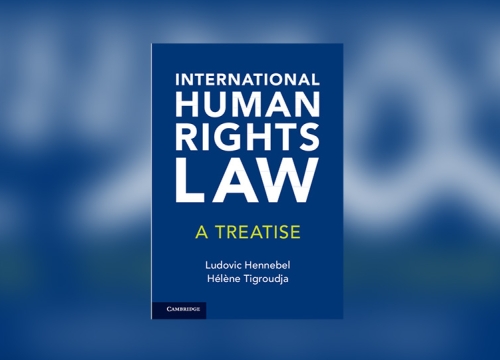Economic, Social and Cultural Rights in an Era of Escalating Armed Conflict: Where Can International Human Rights Law Help?
Event


Wikimedia
As armed conflicts proliferate and intensify across regions, these pose increasingly acute threats not only to peace and security but also to the full enjoyment of economic, social and cultural rights (ESCR). Yet, even in times of war, international human rights law does not vanish — it endures, asserts its relevance, and provides a legal and normative framework that complements and reinforces international humanitarian law. The persistent applicability of human rights protections in situations of armed conflict is not merely a doctrinal affirmation, it is a pressing imperative. In the face of massive displacements, attacks on civilian infrastructure, the collapse of public services, and disruption of livelihoods, the operationalization of human rights obligations becomes both more complex and critical.
In the context of systemic disruption and normative tension, international human rights mechanisms play a pivotal role: these help articulate States’ obligations, ensure a minimum legal floor for the protection of rights, and offer a framework for accountability and prevention.
To reflect on these contemporary challenges and provide forward-looking insights, the Geneva Academy, in collaboration with the Committee on Economic, Social and Cultural Rights’ (CESCR) drafting group of the upcoming General Comment on the Application of the ICESCR in Situations of Armed Conflict, is honoured to host an evening dialogue with Prof. Ludovic Hennebel, Rapporteur on the CESCR’s General Comment on the Application of the ICESCR in Situations of Armed Conflict, and Prof. Hélène Tigroudja, Vice-Chair of the UN Human Rights Committee who will present their latest publication: International Human Rights Law: A Treatise, Cambridge University Press (2025) — a jurisprudentially rich and theoretically grounded piece of work defining the contemporary landscape of human rights law.
Combining rigorous legal analysis with strategic foresight, this evening promises a unique and intellectually vibrant forum for academics, practitioners, diplomats, and all those committed to upholding human dignity in times of conflict.
The discussion will be followed by an apéro until 9:00pm.
Please note that this event will take place following discussions on the intersections between economic, social and cultural rights and armed conflict writ large, also scheduled on 25 September. Should you wish to participate in these discussions prior to this event, please reach out to This email address is being protected from spambots. You need JavaScript enabled to view it. and we may be able to extend an invitation.










